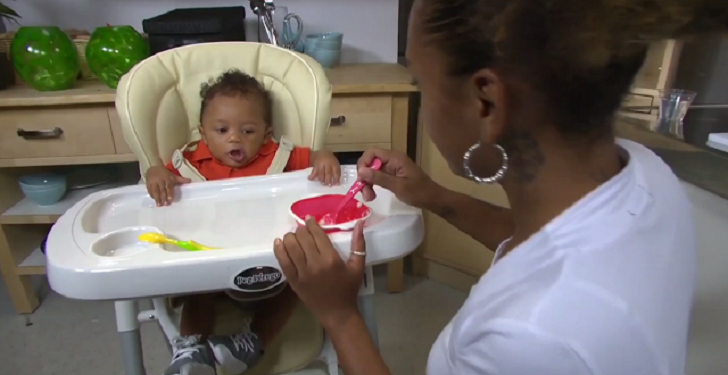Feeding your baby shouldn't be a stressful experience. As a mom, there’s nothing more important than protecting your baby’s healthy growth and development. To help you get off to the right start, follow these expert tips to make mealtimes fun and ensure your growing baby gets all the nutrients he or she needs.
1. Go for savory over sweet
Always introduce savory foods such as vegetables, before you introduce sweet-tasting foods, such as custard and fruit. Babies and children will almost always choose sweet foods over savory options so it is important that they learn to eat savory tastes first. Most importantly, savory options including mashed veggies, lentils or beans, and pureed meats offer a number of important nutrients including fiber, iron, zinc and vitamins and minerals which are vital for rapidly growing babies and toddlers.
2. Increase the texture
Babies do not need extremely soft, pureed food for overly long periods of time. Once they have mastered fruit, vegetable, and meat purees, at 7-8 months, make sure you begin to increase the consistency to finely minced texture. Babies need foods they have to chew to help them properly develop their chewing muscles and also to talk. Include lumpier foods such as mince meats and pasta from 9 months of age.
3. Eat properly
Always sit your baby in their designated chair, at the dining room table to eat their meals with the television switched off. Babies have an extremely short attention span so need to be able to concentrate fully when they are eating. By 12 months of age, the baby should be having family meals in a happy, social environment.
4. Not too much milk
Babies who over-drink formula (more than 800-1000mls in a day) are more likely to become iron deficient and may not be getting all the nutrition they need from solid foods. Once your baby reaches the age of 9 months, serve solid food before milk to make sure they do not over drink.
5. Get rid of the bottle
One your baby reaches the age of 12 months they should be managing cup feeds. Introduce water from a spouted cup at 6-7 months of age. Using a toddler cup will also help prevent your child from overdrinking.
6. Water, water, water
Water should be the drink of choice for all children. Fruit juice, soft drink, and cordials are all high in sugar and should not be offered to children.
7. Get dad involved
Research has shown that dads are extremely powerful role models for children in the area of eating. If possible, make sure your baby's dad is regularly involved in feeding the baby and that all family members sit down together at the table to eat during meal times.
8. Remember the iron and protein
A number of baby foods contain plenty of vegetables and starch but far less nutrient-rich meat like chicken and fish which are the key sources of protein and iron in the diets of infants. Check labels on baby food containers and make sure they contain lean meat to ensure your baby is receiving enough iron in his/her diet for optimal brain development.
9. Omega-3 rich foods
Oily fish contains a special type of fat called omega-3 fat which is known to play a powerful role in brain development. Try and include oily fish in your toddler's diet 2-3 times each week once they are eating solid foods.
10. Enjoy feeding your baby
Remember that mealtimes are supposed to be fun and enjoyable. Try not to stress if your child does not always want to eat what you would like him/her to. If they do not eat a lot today, they will make up for it tomorrow.

